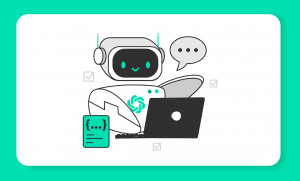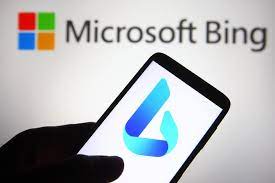OpenAI, the leading AI research organization, has recently unveiled an exciting new feature for subscribers of ChatGPT Plus—the premium version of their AI-powered chatbot. With the introduction of Browsing, users can now utilize the ChatGPT app to search for answers on the web. However, there is a catch: the browsing functionality is exclusively powered by Bing, Microsoft’s search engine. This article explores the implications of this integration and its potential impact on users’ experience.

Enabling Browsing with Bing on ChatGPT
OpenAI has made it simple for ChatGPT Plus subscribers to activate the Browsing feature. Users can switch to the GPT-4 model and select “Browse with Bing” from the drop-down menu by navigating to the New Features section within the app settings. This exciting functionality is available on both the iOS and Android versions of the ChatGPT app.
Also Read: OpenAI Rolling Out ChatGPT Plugins For All Plus Users | Learn How to Enable Them
Expanding ChatGPT’s Knowledge Horizon
OpenAI emphasizes that Browsing is particularly valuable for addressing queries related to current events and topics that extend beyond the original training data of ChatGPT. Before this feature, the chatbot’s knowledge was limited to information available until 2021. With Browsing enabled, users can access up-to-date and comprehensive information, greatly enhancing the research capabilities of ChatGPT.

Empowering Users and Enhancing Research
Integrating Browsing with ChatGPT brings significant advantages to users, enabling them to delve deeper into their areas of interest. By leveraging Bing’s search capabilities, ChatGPT becomes an invaluable research assistant, providing access to a wealth of information. Whether users require the latest news, historical facts, or insights on various topics, the Browsing feature expands the possibilities of what ChatGPT can offer.
Also Read: GPT-4 Capable of Doing Autonomous Scientific Research
The Bing Exclusivity Debate
While Browsing amplifies the usefulness of ChatGPT, the decision to limit search capabilities exclusively to Bing has raised some concerns. Critics argue that relying solely on Bing seems restrictive, especially considering the vast array of search engines available. As OpenAI has a close partnership with Microsoft, the motive behind this integration may seem biased. Nonetheless, it is important to acknowledge that Bing continuously improves its algorithms to enhance search accuracy.

Addressing the Limitations
One concern with ChatGPT’s Browsing feature is that if Bing encounters any inaccuracies or limitations, users have no alternative search engines to choose from within the app. To mitigate this, OpenAI may consider exploring possibilities for expanding search engine options in the future. While Bing is the current exclusive partner, it is plausible that OpenAI may collaborate with other search engines to provide users with a broader spectrum of choices and ensure a more balanced approach.
Also Read: Are Plugins and Web Browsing in ChatGPT of Any Use?
Enhancements Beyond Browsing
In addition to the Browsing feature, OpenAI has implemented a user-friendly improvement within the ChatGPT app. Users who tap on a search result are directly taken to the relevant point in the conversation. This update enhances the user experience, allowing seamless navigation between search results and chat interactions.
Our Say
OpenAI’s recent introduction of the Browsing feature with Bing integration in the ChatGPT app marks a significant step forward in enhancing the chatbot’s capabilities. While the exclusivity to Bing raises questions about choice and potential biases, there is no denying the value that Browsing brings to users, particularly in researching current events and expanding knowledge horizons. OpenAI’s commitment to continually improving user experience and its close partnership with Microsoft may lead to future developments, ensuring a more comprehensive and versatile browsing experience within the ChatGPT app.




